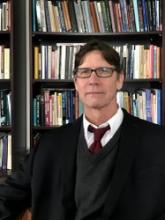
What Is It
Philosophers call a person autonomous if she is responsible not just for what she does but also for the principles and rules that guide her. But does this really make sense? Aren't we all just products of culture, education and genes? Join John and Ken as they investigate the nature of autonomy with John Christman from Penn State University., author The Politics of Persons: Individual Autonomy and Socio-historical Selves.
Listening Notes
Autonomy: illusion or reality? Before turning to guest John Christman, John and Ken decide that autonomy is a sort of self-government wherein an individual lives by their own rules and lives a free life. Christman agrees with John and Ken that autonomy is best understood as self-government, but he is careful to distinguish autonomy from freedom—freedom refers to action whereas autonomy refers to the internal conditions that move someone to act. Christman also disagrees that autonomy means making up your own rules, if that’s true its unclear why autonomy is a value and whether autonomy is even possible. Instead, Christman asserts that autonomy is more like self-management than self-creation—and self-management is the ability to effectively pursue our desires as opposed to blindly following them.
John agrees with Christman’s definition and decides to flesh it out with an example. Let’s say a man decides to become a vegetarian. This autonomous decision isn’t made any less autonomous because someone else created the idea of vegetarianism and told him adopted the practice. Christman likes this example, it illustrates his point that autonomy is a state of thinking over one’s values and endorsing them. What makes a vegetarian autonomous would not be creating the idea of vegetarianism but reflecting on the idea of vegetarianism and deciding to become one. Ken objects, he says this definition sounds more like thoughtfulness than autonomy. Christman acknowledges his definition is philosophically problematic – if autonomy is examining one’s desires then we may run into an infinite regress of desires. The first desire is not to eat meat, and the second desire is not to harm animals, and the third desire is to do as little harm in ones life as possible, and so forth ad infinitum.
Ken challenges Christman again, asking Christman about an autonomous Satan. Should a purely evil person’s autonomy be respected? Christman identifies two approaches to this problem. The first, Kantian approach is to say that the capacity to impose upon ourselves moral principles is the seat of all moral responsibility and obligation. So if someone is satanic, or they embrace evil principles it is unclear what sort of respect we owe them. The second approach, which Christman calls the observer point of view demands that when we interact with other people we owe them some respect, respect their autonomy. If someone who knows the difference between good and bad chooses to do bad we may punish them but in the end we still owe them some respect, we still grant them some autonomy.
In the final segment of the episode, John, Ken and Christman consider the relationship between autonomy and democracy. John thinks we need autonomous thinkers to make democratic decisions. But then after that we reach consensus we want everyone to follow these rules, regardless of their desires. Ken is still uninspired by this definition of autonomy. What John and Christman call autonomy sounds more like reflection and the simple act of weighing costs and benefits before making a decision. Christman concludes that the autonomous component of the democratic process is being able to weigh these costs and benefits in the first place. The autonomous self is produced by this ability to give reasons for our actions and interact with other people.
- Roving Philosophical Report (seek to 4:40): Polly Stryker considers one person’s autonomous decision to leave a career in physics and become a philosopher.
- Sixty-Second Philosopher (seek to 50:01): Ian Shoales addresses complaints that his so-called sixty-second philosophies are almost always longer than sixty-seconds.



